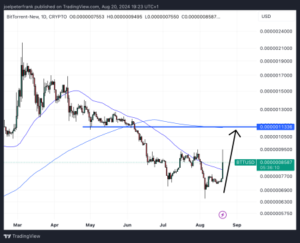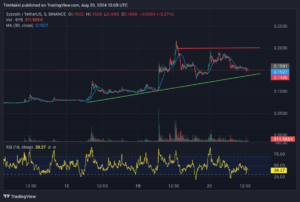Last updated:
 Why Trust Cryptonews
Why Trust Cryptonews

Binance faces an $86 million tax demand from Indian authorities under the Goods and Services Tax (GST) framework. This comes as the crypto exchange seeks to reestablish its presence in the country, which has been marked by a challenging regulatory journey.
Binance’s Reenters India Amid Regulatory Scrutiny
The return of Binance to India comes after Indian anti-money laundering (AML) agencies gave Binance the green light to resume operations.
On August 15, 2024, coinciding with India’s 78th Independence Day, Binance announced its reentry into the Indian market. The company sees this as a fresh start for cryptocurrency adoption in India, a rapidly growing digital economy. Yet, this fresh start is complicated by past issues.
The origins of this tax dispute can be traced back to December 2023, when India’s Financial Intelligence Unit (FIU) issued notices to several offshore crypto exchanges, including Binance, KuCoin, Bittrex, Gate.io and OKX, for operating illegally in the country.
The main issue was the requirement for these exchanges to be registered as “reporting entities” in India, as they were allegedly not submitting routine statements to the Indian Income Tax Department.
The regulatory clash led to the removal of Binance’s mobile app from the Google Play Store and Apple’s App Store in India.
The lack of compliance meant that many Indian users could circumvent the country’s tax laws, such as the 1% Tax Deducted at Source (TDS) levy and the flat 30% tax on all crypto transactions and digital asset transfers.
Binance has taken different steps to rectify its regulatory standing and reestablish its presence in the Indian market, however.
In April 2024, the exchange paid the FIU an approximately $2.25 million fine for violating the country’s Anti-Money Laundering (AML) regulations.
Binance also assured Indian authorities that it would continue to comply with all required tax reporting processes while maintaining robust AML and countering the financing of terroristic controls.
Additionally, Binance has committed to facilitating the creation of an industry-leading Financial Crimes Compliance unit.
This unit will be designed to assist Indian enforcement agencies in investigating crypto-related crimes and contribute to capacity-building efforts to strengthen the collaborative security aspect of the ecosystem.
Binance CEO Richard Teng highlighted the importance of the exchange’s registration with the FIU-IND, describing it as a critical milestone in their efforts to tailor services to the needs of Indian users
Broader Implications for Crypto Regulation in India
Binance’s reentry into the Indian market is crucial when the Indian government is deliberating on a sustainable, long-term regulatory framework for the crypto sector.
Implementing the already formulated 30% crypto tax and 1% TDS has heavily impacted local exchange trading volumes, with platforms like CoinDCX and WazirX recording a decline of over 90% in their users since late 2023.
Authorities are now actively targeting offshore crypto exchanges that have previously operated without registering under India’s GST framework.
The Indian GST framework consists of four-tier tax slabs ranging from 5% to 28% and also includes a unique levy known as “cess.”
Cess is an additional tax imposed on certain goods and services, specifically those related to educational and health sectors.
The cess seeks to generate dedicated funds for developing and improving social services in the country.
Governments often use cess revenue to finance initiatives and programs that improve education and healthcare infrastructure, ensuring greater access and affordability for citizens.
In India’s crypto taxation context, the authorities are expected to apply a similar cess on top of the standard GST rates levied on foreign crypto exchanges.
This additional tax burden reflects the government’s intention to channel resources toward social welfare, even as it seeks to regulate the digital asset ecosystem.
With Binance facing a tax levy, it is expected that similar tax demands will be made on other international crypto exchanges, including Huobi, Kraken, Gate.io, KuCoin, Bitstamp, MEXC Global, Bittrex and Bitfinex.
However, Binance’s compliance with Indian regulations could set a precedent for other global crypto platforms to operate in the country, potentially leading to a more balanced approach to crypto oversight.

















